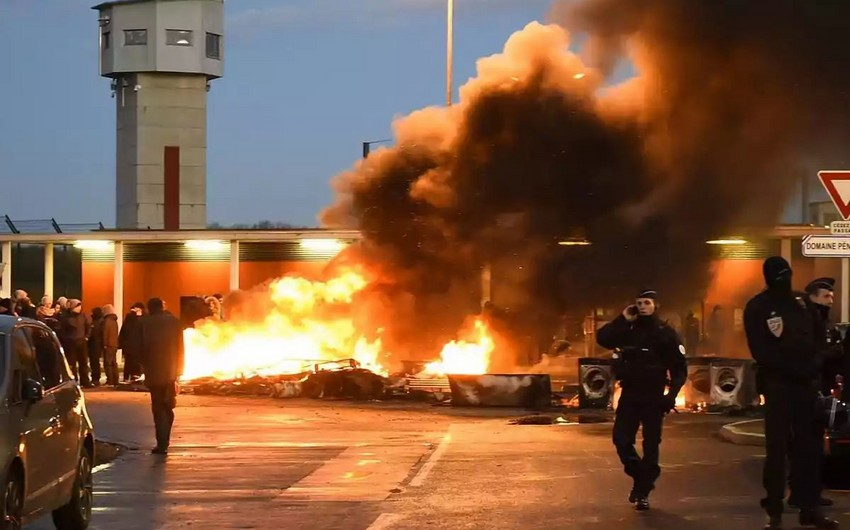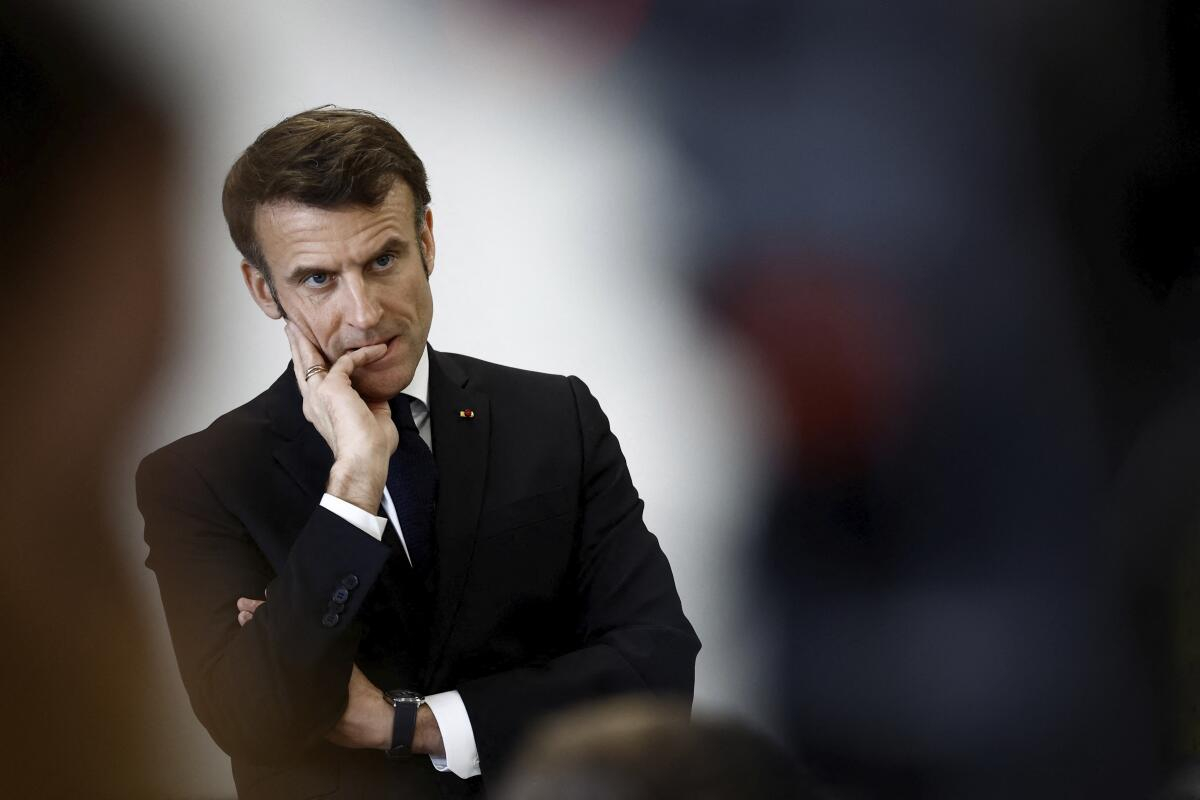
France, once proud of its democratic ideals and civil liberties,
is now facing a deep internal crisis—one not caused by “foreign
interference” but by years of mismanagement, hypocrisy, and a
government that is increasingly out of touch with its people.
While President Emmanuel Macron and his administration have kept
busy interfering in the affairs of other nations—from pushing
defense deals in Armenia to lecturing others on democracy—France is
now erupting from within. The streets are restless, prisons are on
fire, and the government’s first response is not introspection, but
accusation.
Over the past week, French prisons have become the epicenter of
protests, violent unrest, and even armed attacks. At least 12
prison-related incidents have occurred since Sunday, with cars set
ablaze and shots fired near correctional facilities. In the chaos,
a new group calling itself “Droits des Prisonniers Français”
(Rights of French Prisoners) has emerged, accusing the French
justice system of degrading treatment and calling for basic human
rights. Whether this group is real or a smokescreen remains
unclear, but the government is already pointing fingers—at Russia
and Algeria.
French Interior Minister Bruno Retayo declared a “war” against
what he calls “narco-racaille,” gangs of drug traffickers who he
claims are behind the unrest. But rather than deal with the root
causes—social inequality, poor prison conditions,
alienation—authorities are again looking outside their borders.
Retayo’s claims echo the kind of rhetoric that turns every domestic
issue into a foreign plot. Russia is being blamed for alleged
psychological operations and graffiti campaigns—just as it was
after antisemitic incidents linked to Hamas’ attacks in 2023.
Algeria, meanwhile, is accused of stoking unrest in retaliation for
diplomatic slights.

But here’s the irony: the diplomatic breakdown with Algeria was
provoked by Paris itself. In the summer of 2024, France publicly
backed Morocco on the Western Sahara issue, a red line for Algiers.
The Algerian government responded by recalling its ambassador and,
more recently, expelling 12 French diplomats. According to German
outlet “Deutsche Welle”, tensions have been mounting ever since,
with Macron’s administration unable—or unwilling—to repair the
damage. Instead, France escalates, offering accusations rather than
apologies.
France’s colonial history with Algeria remains an open wound.
The Algerian state and people have demanded accountability for
France’s brutal colonial rule, including accusations of genocide
and mass killings. But instead of confronting that past, Macron has
pursued symbolic gestures and selective memory—failing to offer a
full apology or reconciliation. As a result, relations have turned
toxic. Algeria has maintained a calculated and diplomatic posture;
France, on the other hand, seems to be reacting from a place of
insecurity and confusion.

In the background of all this, Macron’s France is facing a
legitimacy crisis. Those who take to the streets to voice economic
and social grievances are met with police violence—mounted charges,
tear gas, mass arrests. The state accuses others of repression
abroad while silencing its own people. The rhetoric of “foreign
interference” serves a purpose: it hides the absence of a real
strategy.
Meanwhile, Paris’ accusations sound increasingly hollow. If
there’s anyone interfering in France’s stability, it may not be
Algeria or Russia—but the Macron government itself, which has
ignored domestic grievances and undermined international
relationships through arrogance and neglect.
At the center of it all is a France that seems unable to admit
that its crisis is self-made. In blaming others, it seeks an escape
from accountability—but as the streets burn and alliances crumble,
that illusion is becoming harder to maintain.
